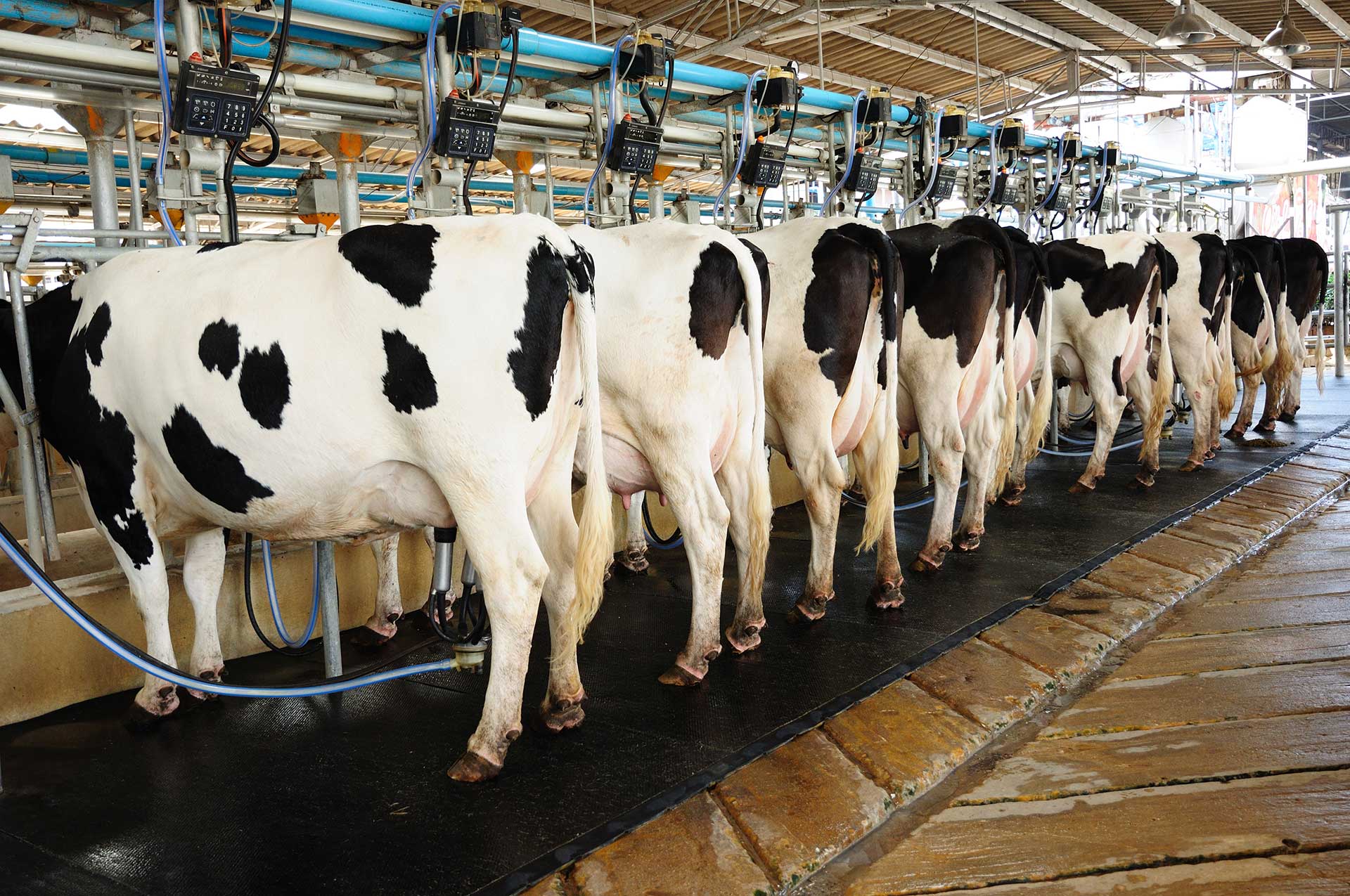Hormone Residue Testing in Dairy Products
Hormone residue testing is a critical component of ensuring food safety and compliance with regulatory standards. In the context of dairy products, hormones such as ractopamine (used in cattle), estradiol-17β (a form of estrogen used in poultry), and others can inadvertently find their way into milk or other dairy products through feed contamination or use of treated animals. This poses significant health risks to consumers, especially children and pregnant women.
The presence of these hormones is regulated by several international standards including ISO 17254-6:2018 for the determination of growth promoters in animal origin foodstuffs. Compliance with such standards is essential not only for ensuring product safety but also to maintain consumer trust and prevent legal issues.
Our laboratory utilizes advanced analytical techniques like Liquid Chromatography-Mass Spectrometry (LC-MS/MS) which provides high sensitivity and specificity, allowing for accurate detection of even trace amounts of these hormones. Specimen preparation typically involves sample collection from the dairy farm or processing facility followed by extraction and clean-up procedures to remove matrix interferences.
The testing process is meticulously controlled with strict adherence to standard operating procedures (SOPs) laid out in ISO 17254-6:2018. This ensures that results are reliable and consistent, enabling accurate assessment of hormone levels in dairy products.
| Applied Standards |
|---|
| - ISO 17254-6:2018 - Determination of growth promoters (e.g., ractopamine, estradiol-17β) in animal origin foodstuffs |
Our laboratory is equipped with state-of-the-art equipment including Agilent 6495A LC-MS/MS systems capable of delivering precise and repeatable results. We employ highly trained professionals who are certified to perform these tests according to established protocols.
Dairy producers, processors, and distributors rely on our services to ensure their products meet stringent regulatory requirements. By providing reliable hormone residue testing, we help safeguard public health while supporting the integrity of the dairy industry.
Why It Matters
- Hormone residues can lead to adverse health effects in consumers.
- Non-compliance with regulations can result in product recalls and legal action.
- Consumer trust is paramount, and adherence to standards builds confidence.
- International trade requires compliance with foreign regulatory requirements.
Hormone residue testing is essential for maintaining the safety of dairy products. It ensures that consumers are protected from potential health risks associated with consuming contaminated milk or other dairy goods. Non-compliance can have severe consequences, including product recalls and legal disputes. Moreover, maintaining consumer trust through rigorous quality assurance measures is crucial for any business operating in this sector.
International trade also necessitates adherence to foreign regulatory standards. Many countries impose strict limits on hormone levels in imported dairy products. Failure to meet these requirements can lead to significant financial losses due to embargoed shipments or destroyed inventory. Therefore, ensuring compliance with relevant international standards is not just a legal requirement but also a commercial necessity.
By conducting thorough hormone residue testing, we contribute to the overall safety and integrity of the global dairy industry. Our service plays an integral role in safeguarding public health while supporting sustainable business practices.
Applied Standards
| Applied Standards |
|---|
| - ISO 17254-6:2018 - Determination of growth promoters (e.g., ractopamine, estradiol-17β) in animal origin foodstuffs |
Our laboratory adheres strictly to international standards when performing hormone residue testing. ISO 17254-6:2018 provides detailed guidelines for the extraction and quantification of growth promoters from animal-derived foods, including dairy products.
This standard ensures that our tests are conducted in a manner consistent with best practices worldwide. It specifies the use of validated methods that provide accurate results under controlled conditions. By following these standards, we can guarantee high-quality test outcomes that meet both local and international requirements.
Our commitment to adhering to ISO 17254-6:2018 reflects our dedication to providing reliable and trustworthy testing services. This approach helps build confidence among clients and stakeholders regarding the safety and quality of dairy products they produce or distribute.
Environmental and Sustainability Contributions
- Reduction in contamination: By identifying hormone residues early, we prevent contaminated products from reaching consumers.
- Support for sustainable agriculture: Ensuring compliance with regulations helps maintain the integrity of the dairy industry, promoting long-term sustainability.
The environmental and sustainability contributions of our hormone residue testing extend beyond ensuring product safety. We contribute to reducing contamination by detecting harmful substances at their source, thereby preventing them from entering the food chain. This proactive approach supports sustainable agricultural practices that minimize negative impacts on ecosystems.
In addition, by promoting compliance with regulatory standards, we help maintain the integrity of the dairy industry. This not only protects public health but also fosters economic stability and growth within this vital sector. Our services play a crucial role in supporting sustainable development goals aligned with international commitments like those outlined in the Paris Agreement.
Through our rigorous testing processes, we contribute to creating a safer environment for consumers while upholding ethical business practices. By adhering to strict standards and using advanced analytical techniques, we ensure that every batch of dairy products meets or exceeds required thresholds for hormone content.





